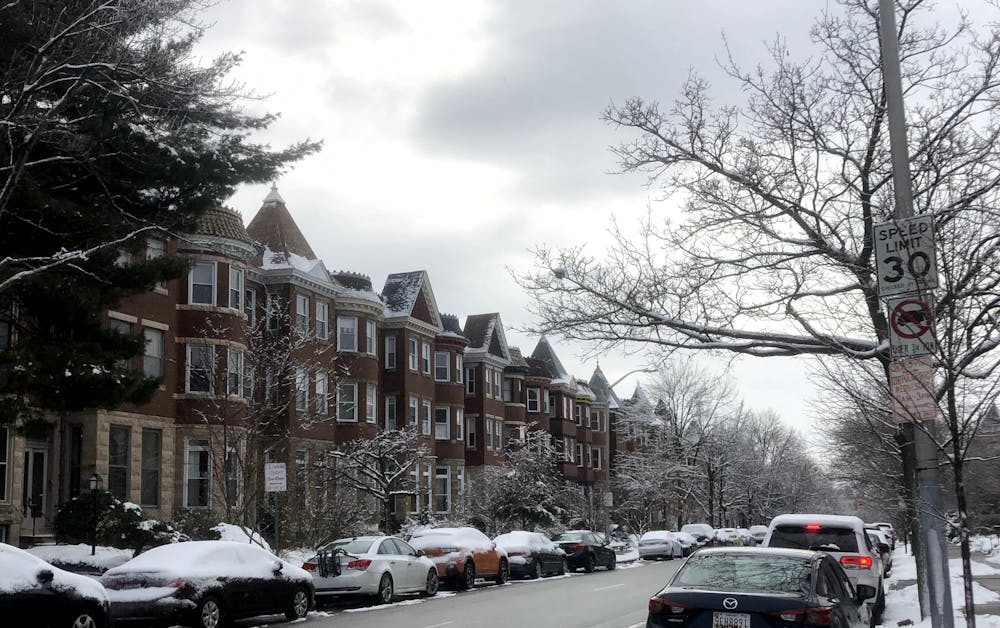“The main message from me to the students is: You’re in a community that cares for each other. I hope everybody is conscious of the community. This is only one year where you have to be in your home all the time.”
These are the words of Odette Ramos, who represents Charles Village, Waverly and other neighborhoods near Homewood Campus in the Baltimore City Council. In an interview with The News-Letter, Ramos asked that students who returned to Baltimore work to keep themselves and their neighbors safe.
As Hopkins prepared for a hybrid spring semester, it developed various COVID-19 safety guidelines, including mandatory mask-wearing, single-occupancy rooms for University housing and biweekly asymptomatic testing for all students living in Baltimore.
Despite these precautions, the University had to suspend all in-person activities and gatherings a day after in-person classes began due to a COVID-19 outbreak tied to a large weekend party. Students are now required to get tested three times a week, and gatherings are capped at five people.
Ramos appreciated the University’s efforts to crack down on COVID-19 outbreaks, noting that the cluster was scary for community members.
“I was really concerned when they first brought it to me that they were bringing students back,” she said. “I continue to remain concerned, although after the first incident, the University is taking much stricter steps to make sure there aren’t any more issues.”
Assistant Vice President of External Relations for the Office of Communications Karen Lancaster emphasized the University’s commitment to communicating with the surrounding community in an email to The News-Letter.
“Elected officials were briefed and university representatives have been in touch with neighborhood leaders and community associations with updates on the situation, as well as with details on how to report concerns regarding non-compliance,” she wrote. “We appreciate the community’s engagement and willingness to submit information regarding what they are seeing in the neighborhoods.”
Lancaster added that campus employees, such as dining workers and Blue Jay Shuttle drivers, have access to the same asymptomatic testing that students do.
Charles Village resident Josh Davis is not pleased that campus has opened in a hybrid capacity despite the University’s outreach efforts.
“It’s unclear to me why Hopkins could not continue this semester fully online,” he said. “If we have even a small minority of students who are not social distancing, who are holding parties, who are eating and drinking around each other while not social distancing, that is dangerous.”
Davis noted that he was not surprised by the outbreak in early February.
“Virtually every other college in the country that has tried to reopen has had the same problem,” he said. “It’s the same story: Even if the vast majority of students are being respectful, even if there’s 5% that are not, they can affect the remaining 95% and the surrounding people.”
While Sandy Sparks, former president of the Charles Village Civic Association (CVCA), is generally happy that students are back in the area, she also deemed the outbreak inevitable.
CVCA President Miller Roberts III highlighted the importance of Hopkins students staying up to date with local and state COVID-19 guidelines.
“Hopkins students are a very important part of our community. We are concerned about their health and safety,” he said. “We want to make sure we do everything we can to make sure they know all the systems in place, the current status of the various orders regarding gatherings, eating in restaurants.”
Ramos called on students to follow local guidelines when they are here.
“I hope that these young people understand that they are in a community and they have to respect that community,” she said. “Some of the students come from places that don’t have mask orders, but Baltimore is a very different place — we do have mask orders.”
The University is taking stricter precautions than the city. When it lifted the blanket ban on all gatherings, administrators encouraged students to avoid indoor dining. Baltimore lifted its in-person dining ban in late January.
As a winter storm moves through Baltimore, Sparks stressed that COVID-19-related precautions are not the only responsibility that students have to their neighbors.
“It would be great since the students have arrived back and it’s winter in Baltimore, when it snows, if they could make an effort to help shovel the sidewalks where they live,” she said.
Ramos urged anyone who is concerned about students breaking social distancing protocol to reach out to her or report it through the University’s LiveSafe app.

















